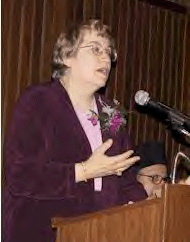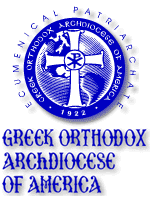
 On The Table Charter Dominates Plenary Sessions at Clergy-Laity Congress By Robert Herschbach
More than thirty amendments and revisions were proposed, and delegates in effect instructed the charter committee to produce another draft. Delegates demanded clear-cut recognition of the administrative authority of the Clergy-Laity Congress, proposed that bishops be elected by the Archdiocese (rather than selected by the Patriarchate), and called for the inclusion of an explicit statement establishing the unity and integrity of the GOA. "The delegates that came to this meeting came prepared, and their voices were heard," said George Matsoukas, president of Orthodox Christian Laity (OCL). "The chair was required to accept a series of motions put forth by the delegates that would steer us towards a more self-governing church." During two days of respectful -- if heated -- discussion, critics of the charter argued that it would limit prospects for self-governance, reduce the role of the laity, and divide the GOA. Elenie Huszagh, a member of the legal committee of the Archdiocesan Council and one of the architects of the proposed charter, vigorously defended the document she helped draft, suggesting that its most vocal critics have simply not read it carefully or fairly. Yet Huzsagh, who recently succeeded Andrew Young as president of the National Council of Churches (NCC), was unable to defuse key issues of contention, many of which have already been voiced by the Archdiocesan Council itself. Among these is the proposed elevation of dioceses to metropolises. Currently the GOA's metropolitans remain, for all practical purposes, bishops. They govern dioceses, and in turn answer to the Archbishop.
Discussion also focused on the administrative role of the Clergy-Laity Congress, which some have charged is weakened by the proposed Charter. Far from diluting the authority of the Clergy and Laity, Huszagh suggested, the new document provides specific measures to ensure that resolutions made at the Congress are acted on by the Patriarchate. "From now on, if the Patriarchate doesn't respond, the resolutions are considered in effect," Huszagh said. If the proposed Charter doesn't specify how often the CLC should meet, that's because it gives the clergy and laity themselves the power to decide when and where the congress should take place, she added. The scene in the California ballroom of the Hotel Westin Bonaventure, where the Congress is taking place, was lively and at times highly charged. In addition to delegates, hundreds of observers and guests looked on, including members of the Ladies' Philoptochos Society, which is also meeting in Los Angeles this week. While only delegates were allowed to voice opinions or cast votes, many others participated through shouts, applause and standing ovations. |
|


